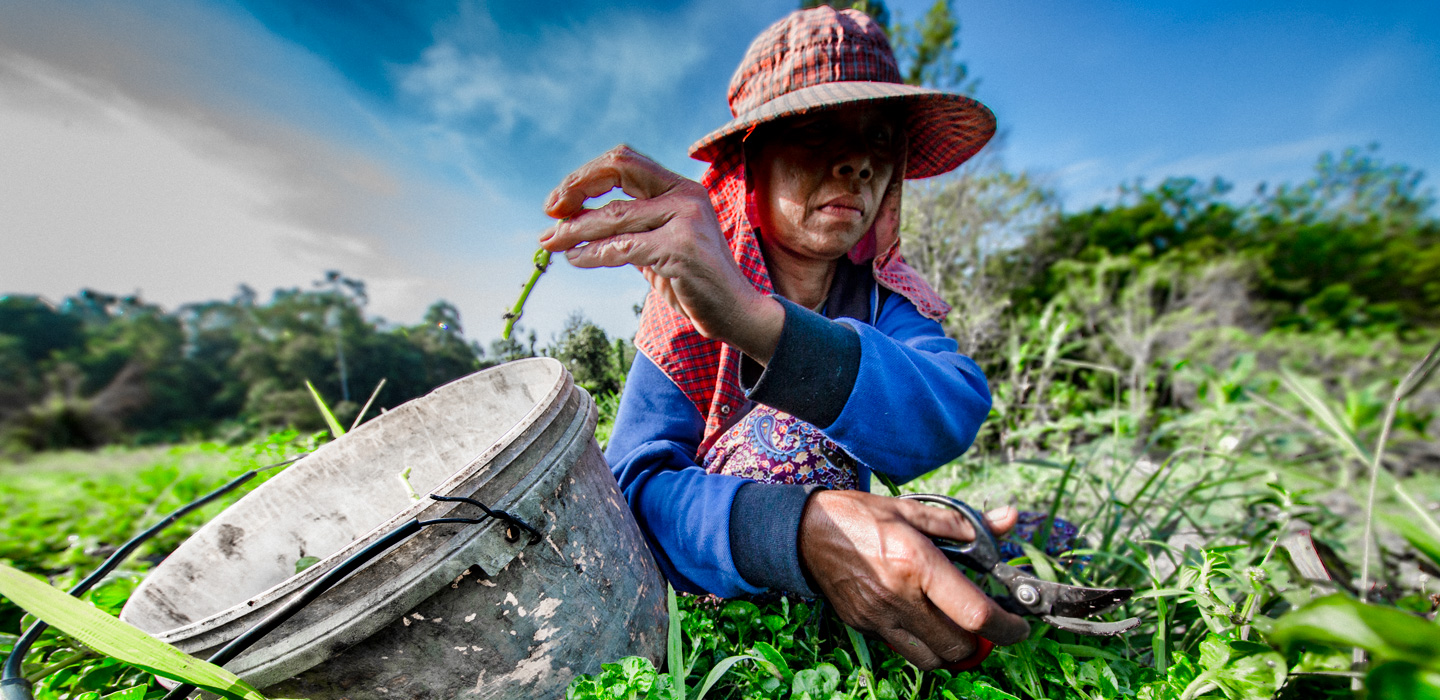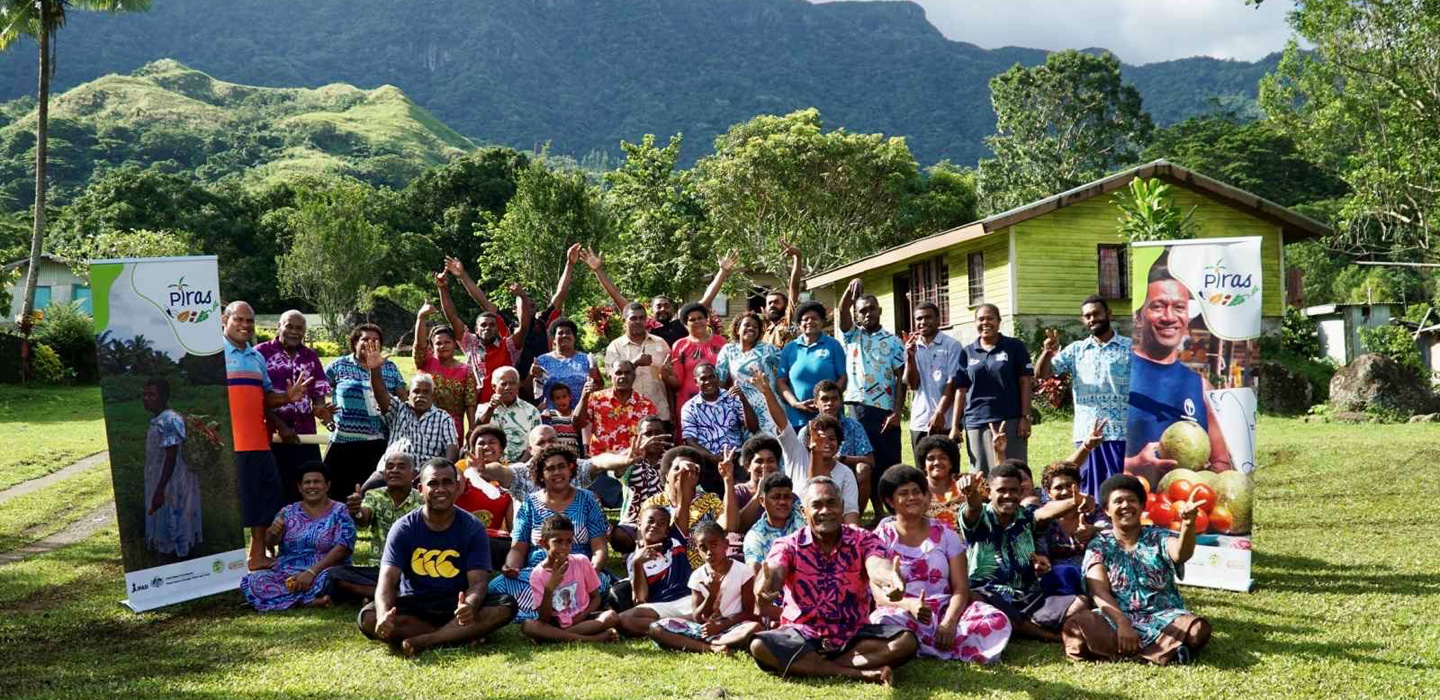Rural Poor Stimulus Facility

IFAD’s Rural Poor Stimulus Facility
Menu Display
IFAD’s Rural Poor Stimulus Facility
As the COVID-19 pandemic unfolds, IFAD remains deeply concerned about its consequences for the well-being, livelihoods and food security of poor rural people. The COVID-19 crisis could undo the progress the world has made in reducing rural poverty (SDG1) and threatens to aggravate already declining food security (SDG2).
COVID-19 poses considerable risks to rural people, who may be particularly vulnerable to its effects – in terms of both the spread of the virus and its economic and social consequences. This is especially true for rural people living in fragile contexts.
Given the magnitude of the challenge presented by this crisis, in April 2020 IFAD launched a multi-donor COVID-19 Rural Poor Stimulus Facility (RPSF). This initiative aligns with the UN socio-economic response framework and complements IFAD’s broader COVID-19 response efforts. It seeks to improve the resilience of rural livelihoods in the context of the crisis by ensuring timely access to inputs, information, markets and liquidity.
The Facility leverages the UN Secretary-General’s Response and Recovery Fund and the work of other multilateral partners to achieve food security for the millions of poor rural people in the most remote and vulnerable communities.
The RPSF is a short-term strategy that feeds into IFAD’s longer-term development objectives. IFAD initiated the Facility with US$40 million of seed funding from grant resources and has since mobilized a further US$53 million from Member States to scale up support. Contributions to the facility include CAD 6 million from the Government of Canada, EUR 27 million from the Government of Germany, EUR 6 million from the Government of the Netherlands, SEK 50 million from the Government of Sweden, and CHF 2 million from the Government of Switzerland. All funds will be disbursed by 2022 as an immediate COVID-19 response.
Objectives and planned interventions
The Rural Poor Stimulus Facility aims to improve the food security and resilience of poor rural people by supporting production, market access and employment.
The ultimate goal of the RPSF is to accelerate the recovery of poor and vulnerable rural people from the COVID-19 crisis. This will be achieved through IFAD’s target group having the capacity, assets and overall resilience to cope with shocks; through lessons that are incorporated into IFAD’s work from the implementation and innovations of the RPSF; and through a strengthened capacity to deliver digital support.
Interventions financed by the facility fall into four categories:
- Providing inputs and basic assets for production of crops, livestock and fisheries
- Facilitating access to markets to support small-scale farmers in selling their products in conditions where market functions are restricted
- Targeting funds for rural financial services to ensure sufficient liquidity and to ease repayment requirements so as to maintain services, markets and jobs
- Promoting the use of digital services to deliver key information on production, weather, finance and markets.
Financing and delivery
All IFAD-supported country programmes that are at risk of not achieving their development outcomes due to COVID-19 are eligible to receive funding from the RPSF. Through the Facility, 85 per cent of funds will be used to support 59 of the most at-risk countries with country-level financing, and 15 per cent will support particularly innovative or strategic regional initiatives. For the country-level financing, IFAD has identified eligible countries based on a widely used COVID-19 risk index, along with relevant indicators on rural poverty.
Activities financed under the Facility will be implemented through existing IFAD projects and programmes, as well as through non-state actors – farmers’ organizations, NGOs and private sector players already engaged in supporting IFAD – wherever they can add value to the response.
For more information on the progress of the RPSF, please contact Ashley Davidson, the RPSF Programme Officer ([email protected]).
Spotlight
Asset Publisher
Pacific Islands Rural and Agriculture Stimulus Facility
The Pacific Islands Rural and Agriculture Stimulus (PIRAS) Facility is a collaboration between IFAD and the Australian Government, and part of IFAD’s Rural Poor Stimulus Facility (RPSF). PIRAS is a regional initiative aiming to minimize the impact of COVID-19 on rural households.
Contacts
Asset Publisher

Related Publications
Asset Publisher
Photo Story: Livestock for sustainable development in Zambia
During the COVID-19 pandemic, E-SLIP and RPSF helped poor people to be more resilient by providing livestock packages and access to market platforms, livestock insurance, water, and other resources. This booklet showcases the stories of these farmers.
Related News
Asset Publisher
IFAD-funded project to develop technological solutions to help smallholder farmers overcome COVID-19 impact in Latin America and the Caribbean
IFAD launched the Innovatech project today, which aims to develop agricultural (AgriTech) and financial (FinTech) digital solutions to facilitate small famers’ access to markets and to financial and non-financial services in Bolivia, El Salvador, Guatemala, Haiti, Honduras and Mexico.
IFAD to provide additional support to mitigate COVID-19 impact in Somalia
A US$ 1.07 million grant agreement between IFAD and the Government of the Federal Republic of Somalia will finance the Resilience Livelihood Action to COVID-19 project (RLAC-19)—a move to strengthen the ability of poor rural people to cope with the effects of the COVID pandemic and threats to their livelihoods.
South Sudan small-scale producers receive support from IFAD to safeguard their livelihoods in the face of the COVID-19 crisis
IFAD will provide much needed funding to assist 23,900 vulnerable rural people (4,780 households) in the Republic of South Sudan. The IFAD grant will help reduce the impact of the COVID-19 pandemic on their farming activities and safeguard their livelihoods.
Related Stories
Asset Publisher
In The Gambia, targeted COVID-19 support helps small businesses flourish
Back in early 2020, when the first waves of COVID-19 were spreading around the world, IFAD launched the RPSF as a multi-donor initiative to sustain rural people around the world during the pandemic. With the RPSF’s help, many were able to start small businesses – and today, those businesses are sustaining local economies and building resilience.
Countries worldwide are stepping up to support rural farmers living in poverty
Related Videos
Asset Publisher
Rural savings banks go digital in Honduras
Don Lolo has been growing coffee on the slopes of El Playón in Honduras for over fifty years. Now, thanks to support from IFAD’s Rural Poor Stimulus Facility, he's using an online banking app to apply for loans, manage savings, and reach new buyers.
Digital Technology and Homeworking help rural women in Guatemala recover from COVID-19
COVID-19 lockdowns meant Juana could no longer go to her job in rural Guatemala. But thanks to a loan from her local rural savings bank and IFAD’s Rural Poor Stimulus Facility, Juana started her own business at home.
Solar-powered fridges aid COVID recovery in Djibouti
This year’s COVID-19 lockdowns cut off Djibouti’s fishing community from their markets. But with no way to store fish in the searing heat, many fishers were forced to throw their catch away. Now, thanks to some solar-powered fridges, they’re back on their feet and trading with new customers.
